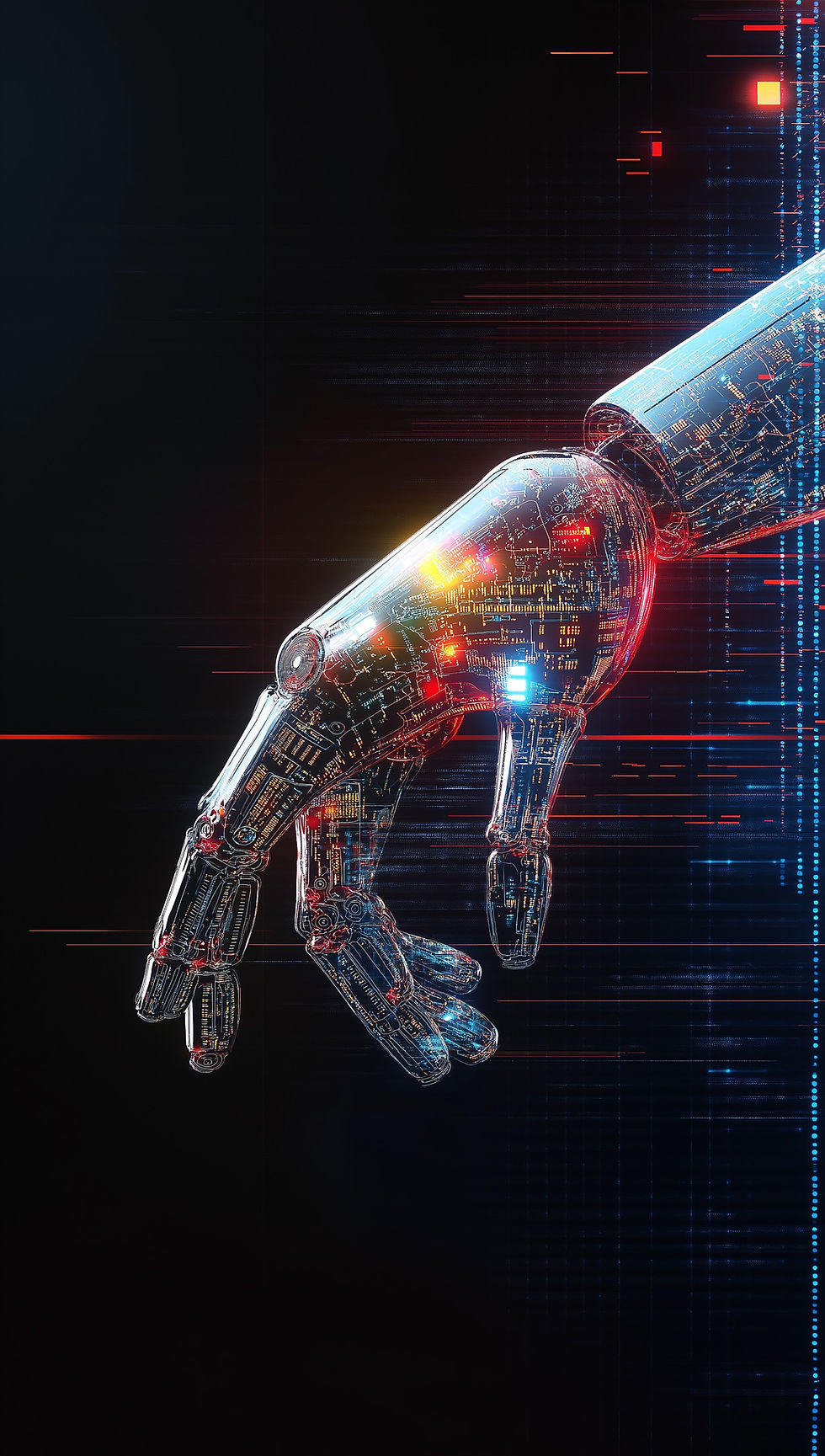ChatGPT vs. the Competition: How It Stacks Up in 2025
- Insider Topics

- Apr 23
- 3 min read
Artificial Intelligence has evolved from a niche innovation to a mainstream tool that’s reshaping productivity, creativity, and how we interact with technology. At the forefront of this movement are conversational AI platforms—capable of everything from writing essays and debugging code to managing workflows and generating content at scale.
Among these, ChatGPT, developed by OpenAI, is one of the most well-known. But how does it compare to other major players in the AI space in 2025?
Let’s break it down and see how ChatGPT stacks up against competitors like Google Gemini, Anthropic Claude, Mistral, and Meta’s LLaMA.
The Contenders in 2025
Before diving into the comparison, here’s a quick overview of the top AI chatbots and LLM platforms:
ChatGPT (OpenAI) – Based on the GPT-4 and GPT-4.5 models; available through ChatGPT and APIs.
Gemini (Google DeepMind) – Evolved from Bard; integrated into Google Workspace and Android.
Claude (Anthropic) – Known for its safety-focused design and context length.
Mistral – Open-weight models focusing on performance and efficiency.
Meta LLaMA – Open-source models aimed at developers and researchers.
1. Model Performance and Intelligence
Feature | ChatGPT (GPT-4.5) | Claude 3 | Gemini 1.5 | Mistral | LLaMA 3 |
Reasoning Ability | 🔥 Excellent | 🔥 Excellent | 🔥 Excellent | 💡 Good | 💡 Good |
Code Generation | 🔧 Strong | 🔧 Decent | 🔧 Strong | 🔧 Strong | 🔧 Moderate |
Math & Logic | 💡 Strong | 💡 Good | 💡 Good | 💡 Fair | 💡 Fair |
Creativity | 🎨 High | 🎨 High | 🎨 High | 🎨 Moderate | 🎨 Moderate |
Multimodal (Image/Audio) | ✅ (Images) | ❌ | ✅ (Image + Audio) | ❌ | ❌ |
Verdict:ChatGPT, Gemini, and Claude are the top three in terms of reasoning, language understanding, and creative generation. Gemini leads in multimodal capabilities, especially with voice and image recognition. ChatGPT also integrates images, though with a slight delay in availability across plans.
2. Context Length (Memory & Retention)
Claude 3: Up to 200K tokens (massive memory, great for long docs)
Gemini 1.5: Similar range (~1 million tokens in experimental settings)
ChatGPT (Pro users): Handles 128K tokens on GPT-4 Turbo
Mistral/LLaMA: Lower by default, unless customized
Verdict:If you're working with large documents or research data, Claude and Gemini offer the deepest memory. ChatGPT holds its own well with 128K tokens in GPT-4 Turbo—more than enough for most users.
3. User Experience and Accessibility
Platform | UX/UI | Integration | Accessibility |
ChatGPT | ✅ Intuitive and polished | Deep Office-style tools, plug-ins, APIs | Free + Pro tiers |
Claude | ✅ Clean, minimal | Slack, Notion, Quora (Poe) | Free + Paid |
Gemini | 🟡 Still improving | Deeply integrated in Google Workspace | Free + Workspace tiers |
Mistral | ⚙️ Dev-focused | Open-weight models for self-hosting | Free (open) |
LLaMA | ⚙️ Dev-focused | Ideal for academic, open-source use | Free (research license) |
Verdict:For ease of use, ChatGPT is the most polished. Gemini’s tight integration with Google Docs, Gmail, and Android is great for Google users. Mistral and LLaMA are developer-centric with little/no built-in UI.
4. Customization and Enterprise Features
ChatGPT (Custom GPTs): Lets users build their own AI with custom instructions, files, and behaviors—no coding needed.
Claude: Doesn’t currently offer GPT-style customization but prioritizes aligned, safe responses.
Gemini: Integrated into Google Cloud’s Vertex AI for full-stack customization.
Mistral & LLaMA: Popular for enterprise and academic research, where self-hosted models are preferred.
Verdict:For businesses or power users looking to build custom tools, ChatGPT and Gemini offer the best mix of capability and usability. Mistral and LLaMA win for on-prem, private deployments.
5. Ethics, Safety, and Open-Source Philosophy
Claude (Anthropic): Built with “Constitutional AI” for ethical alignment and reduced hallucinations.
ChatGPT: Uses reinforcement learning from human feedback (RLHF) and fine-tuning for safety.
Gemini: Backed by Google’s AI Principles but still facing scrutiny over content accuracy.
Mistral & LLaMA: Open-weight, enabling transparency but requiring careful governance.
Verdict:Claude leads the safety-first approach, while ChatGPT offers strong moderation tools. Open-source models give developers full control—but that comes with responsibility.
Final Thoughts: Which One Is Best?
It depends on what you need:
Use Case | Best Option |
General-purpose assistant | ChatGPT |
Research & long-form context | Claude |
Google ecosystem power user | Gemini |
Developer flexibility | Mistral or LLaMA |
Custom AI experiences | ChatGPT (Custom GPTs) |
ChatGPT remains a top choice for everyday users, businesses, and creators thanks to its broad capabilities, customization features, and polished interface. That said, competition is healthy—and platforms like Claude and Gemini are pushing the boundaries of what’s possible.
In Conclusion
The AI assistant space in 2025 is rich, diverse, and rapidly evolving. ChatGPT is no longer the only game in town, but it’s still one of the strongest all-around options for those seeking power, polish, and flexibility in one platform.
Keep exploring, and don't be afraid to test a few—because the best AI tool is the one that adapts to you.








Коментарі